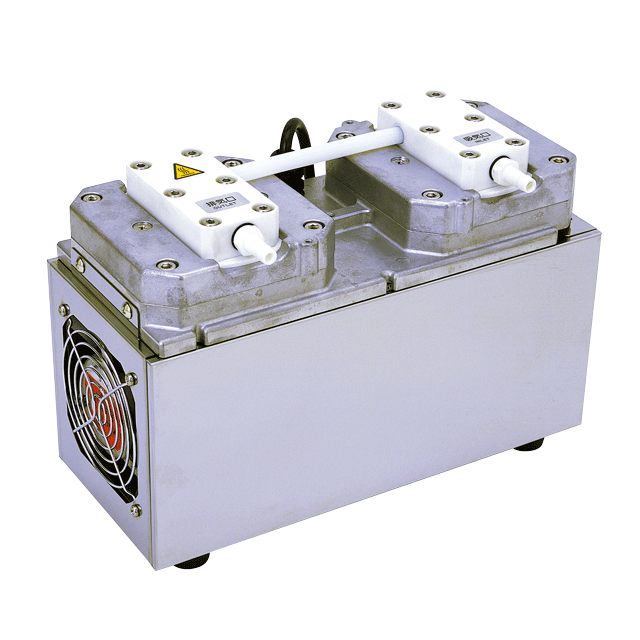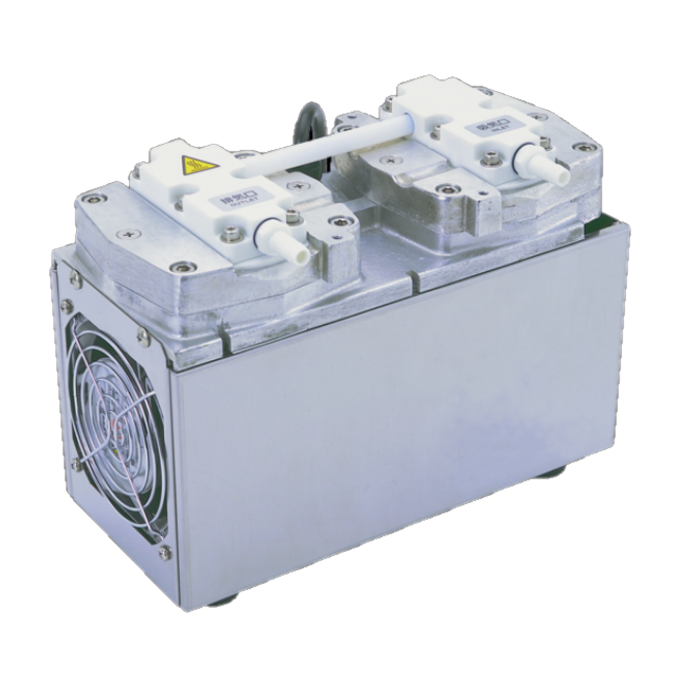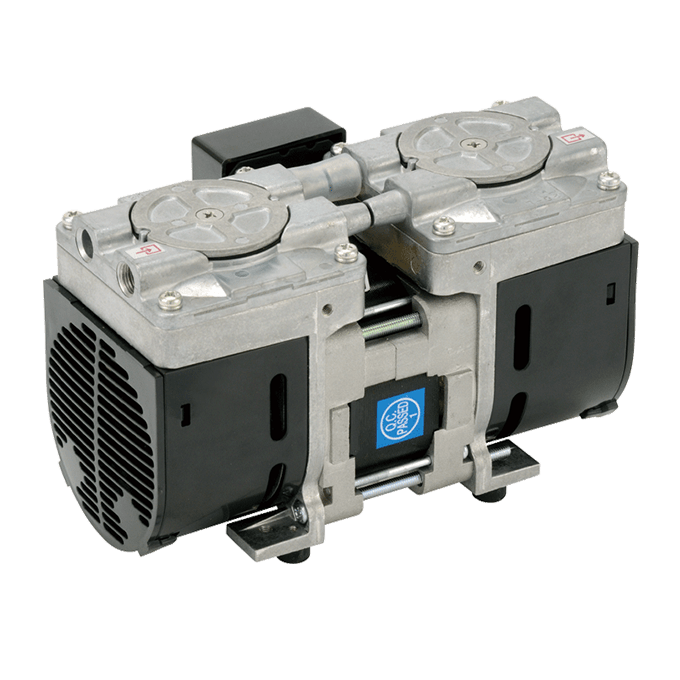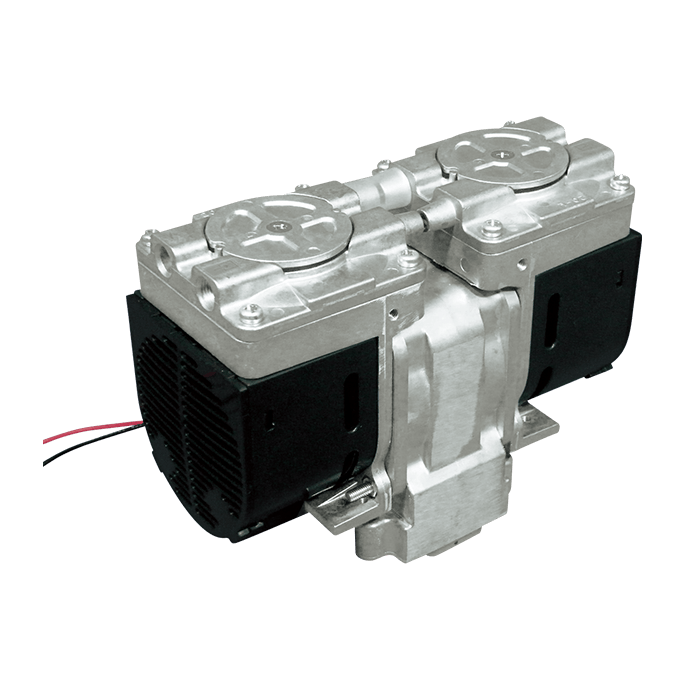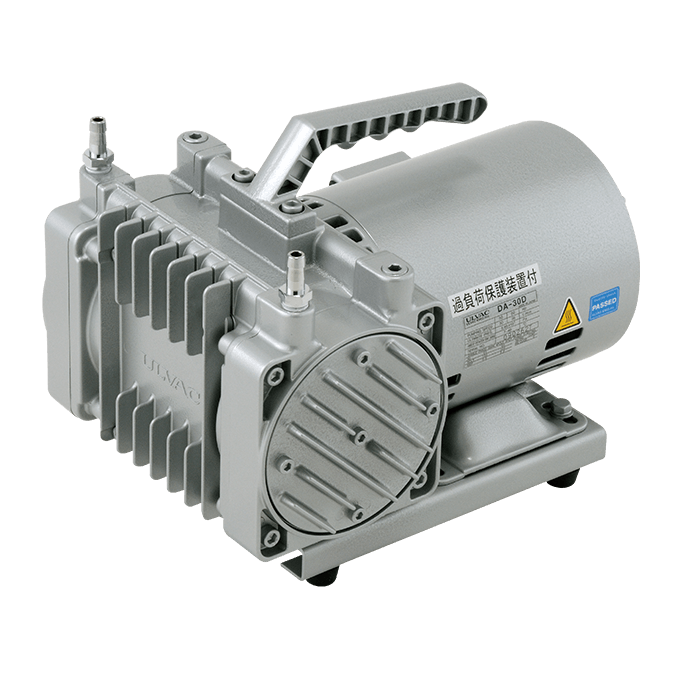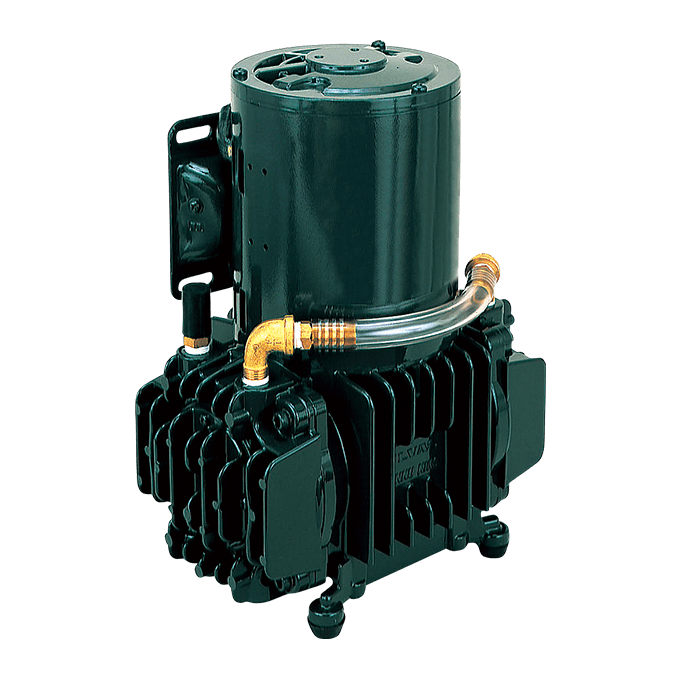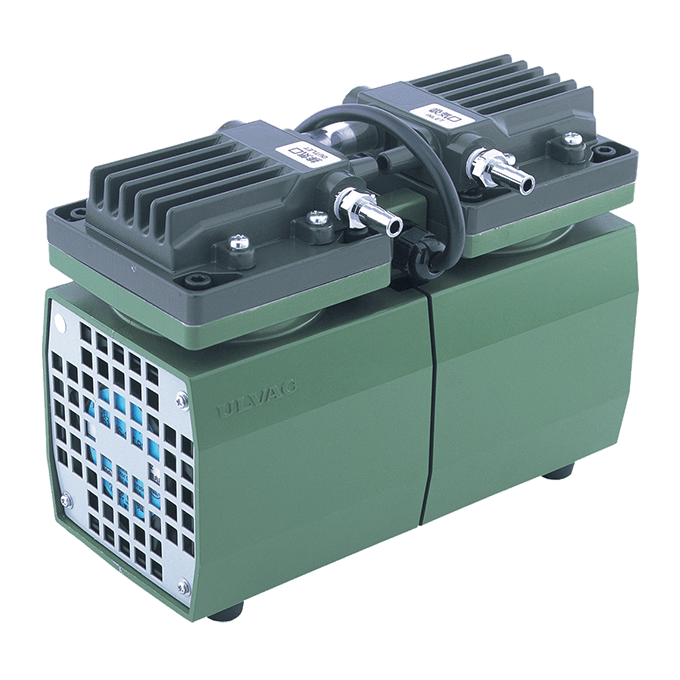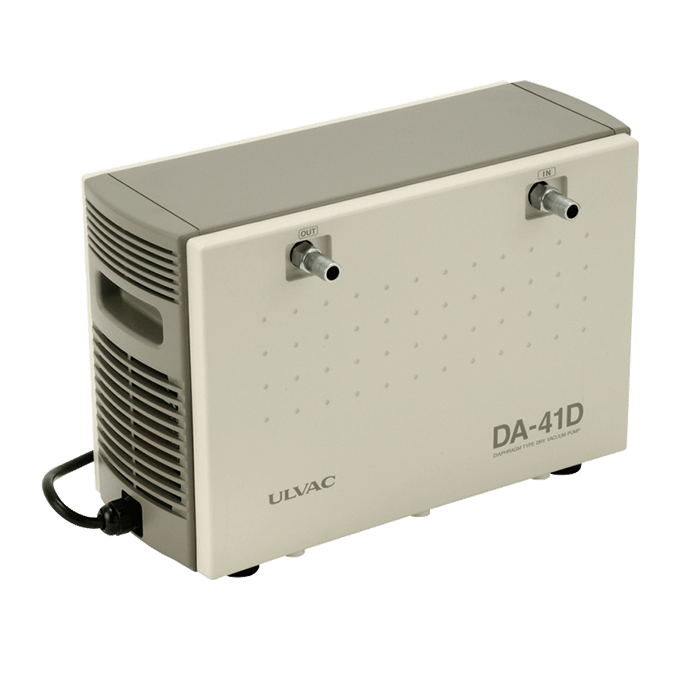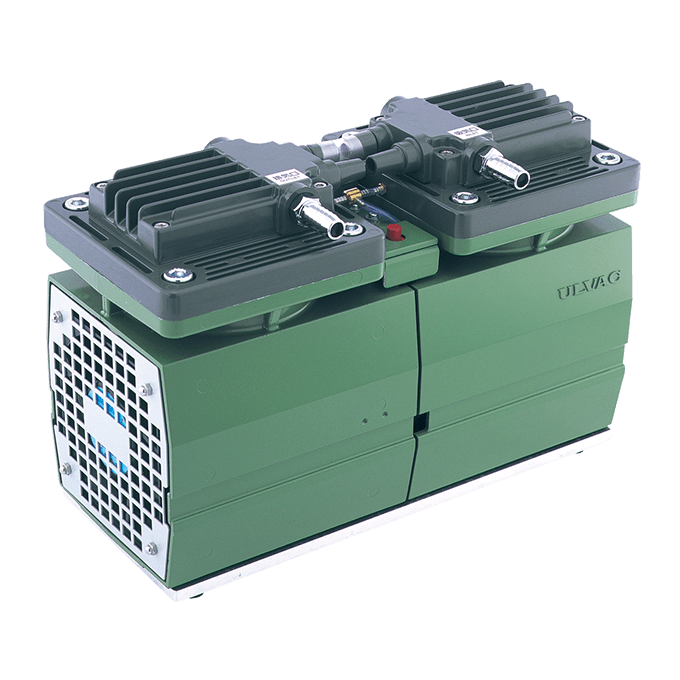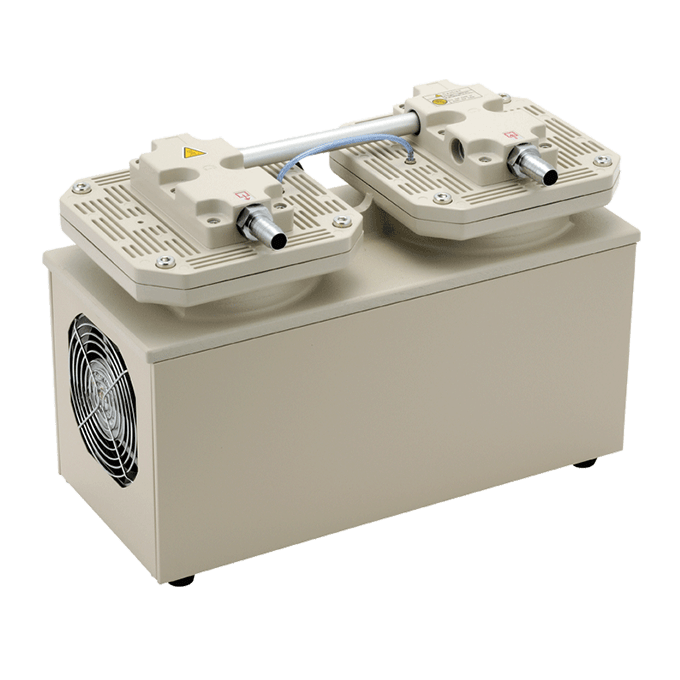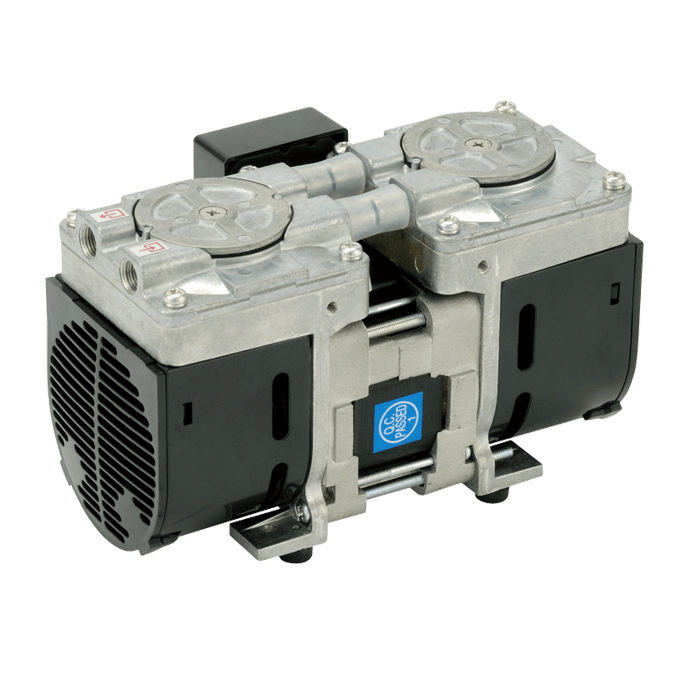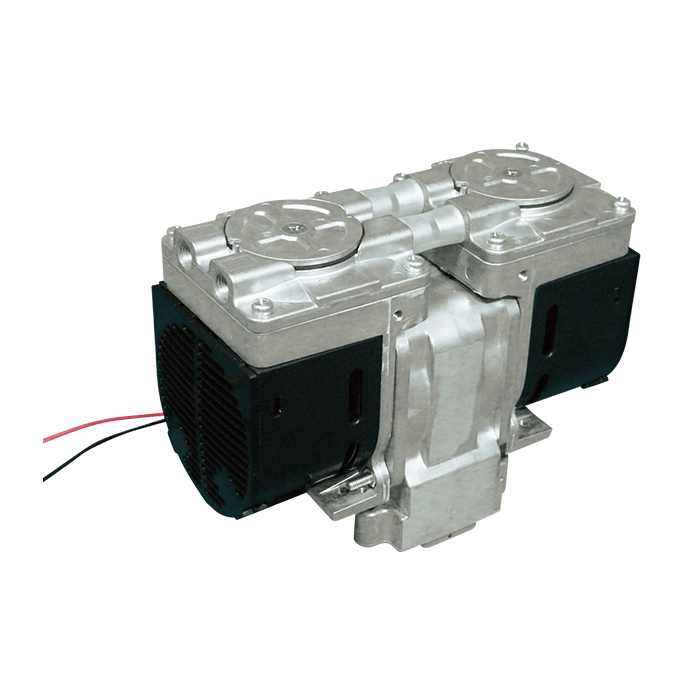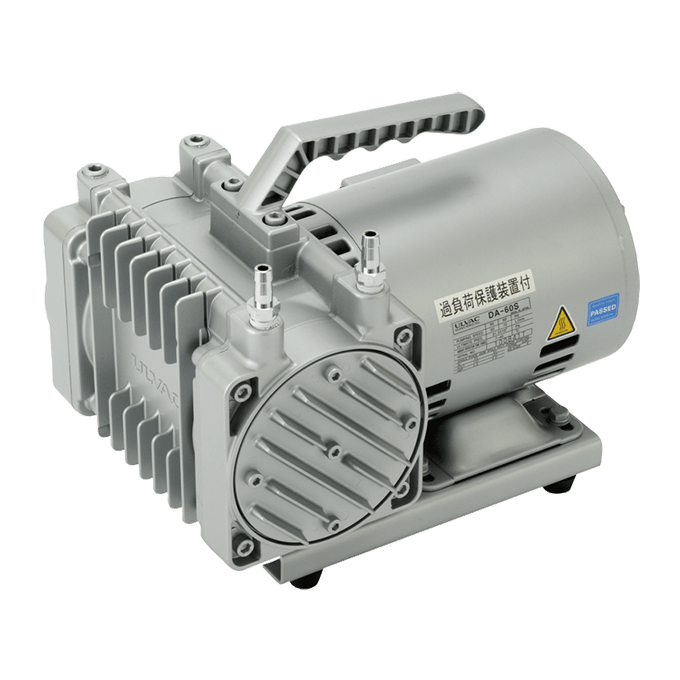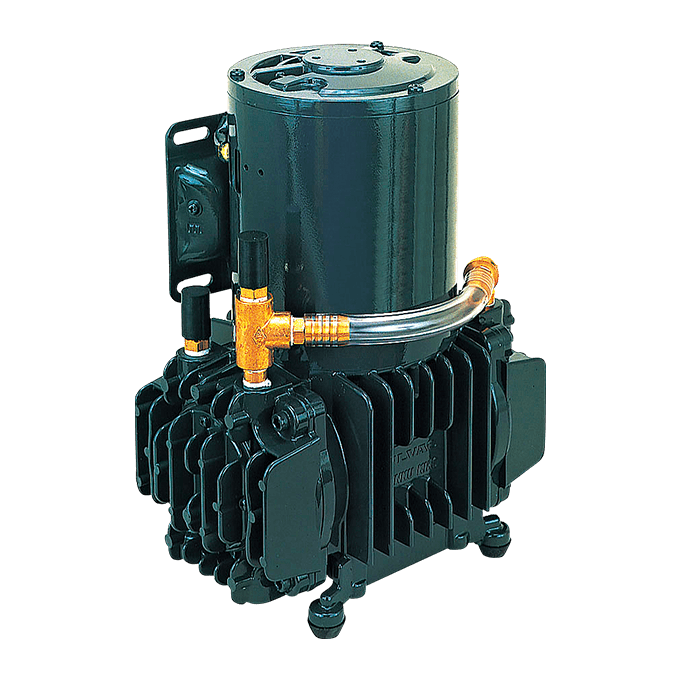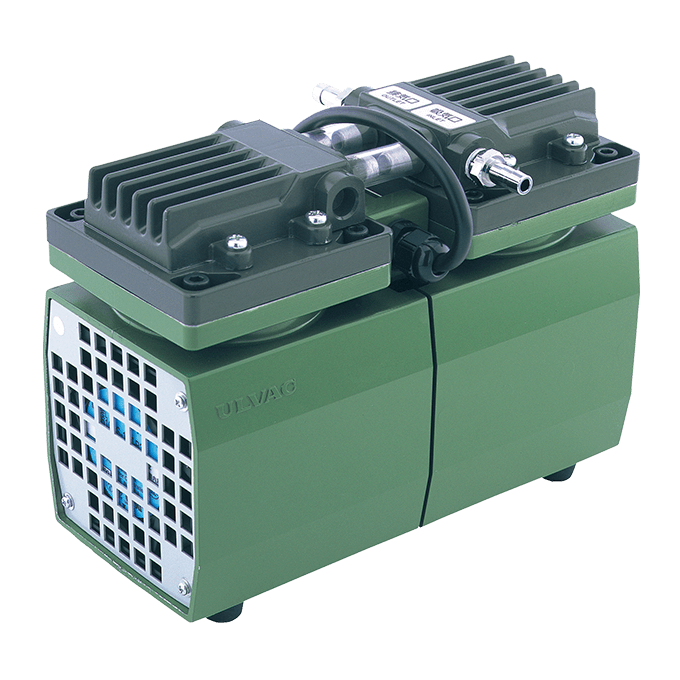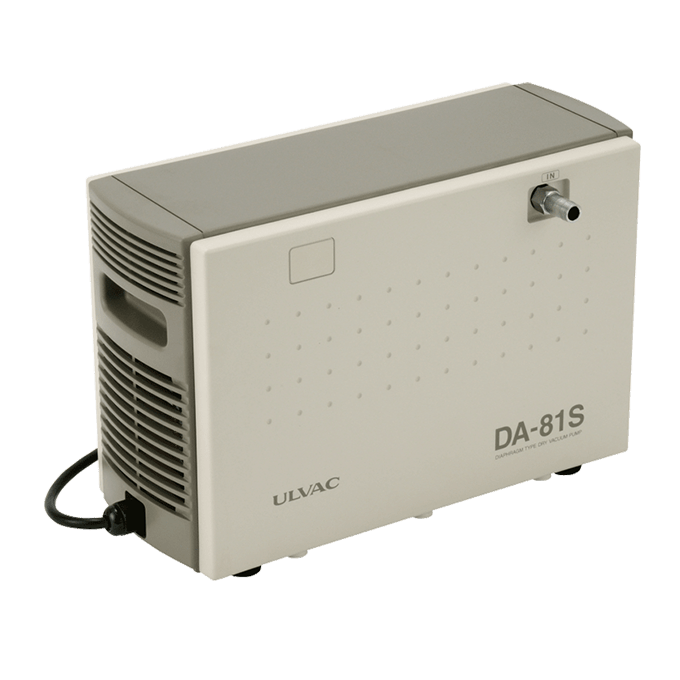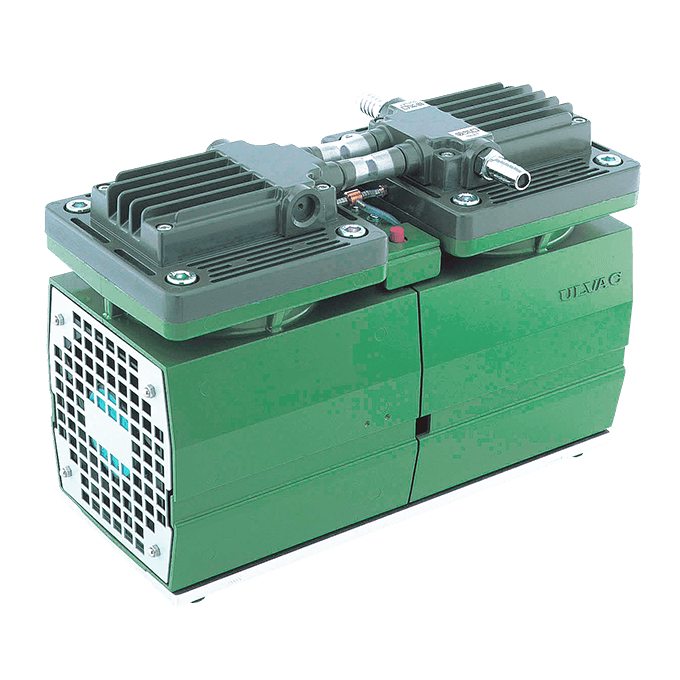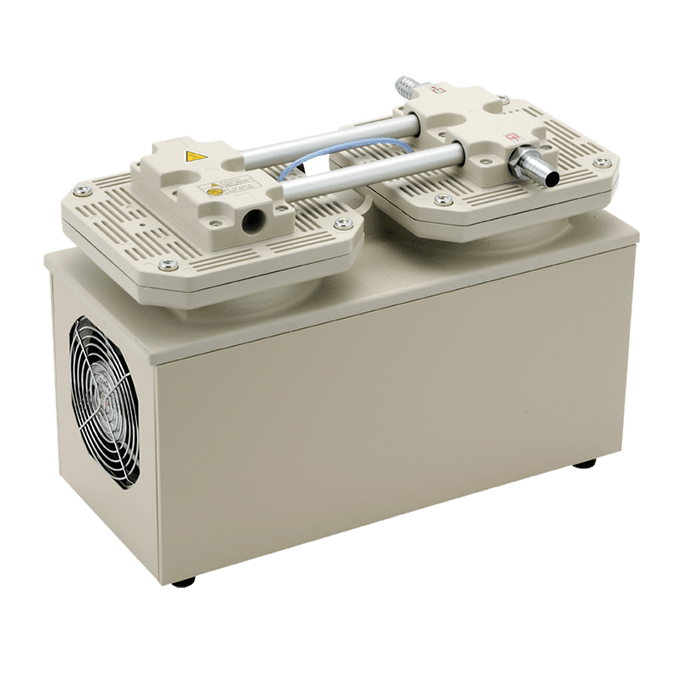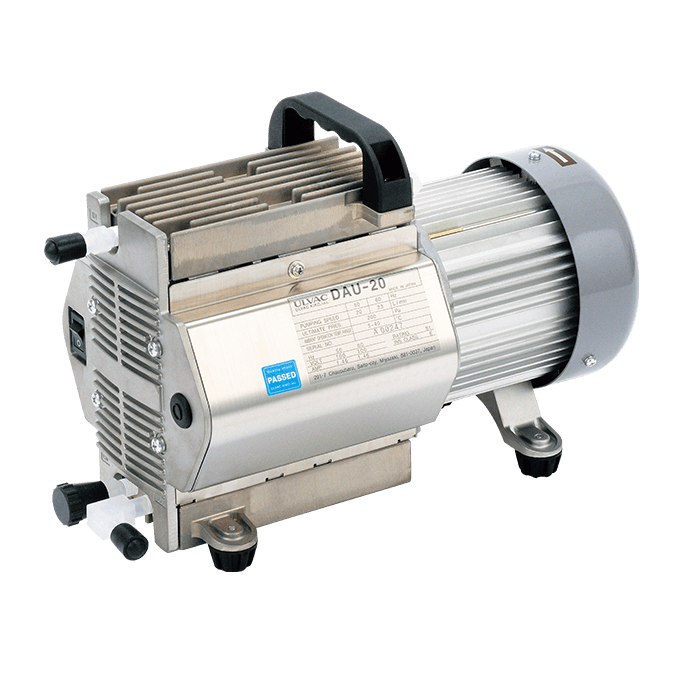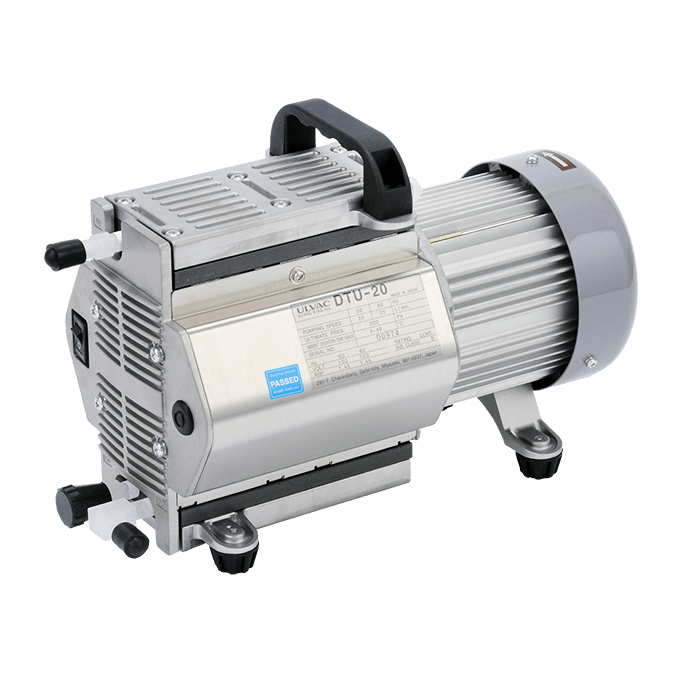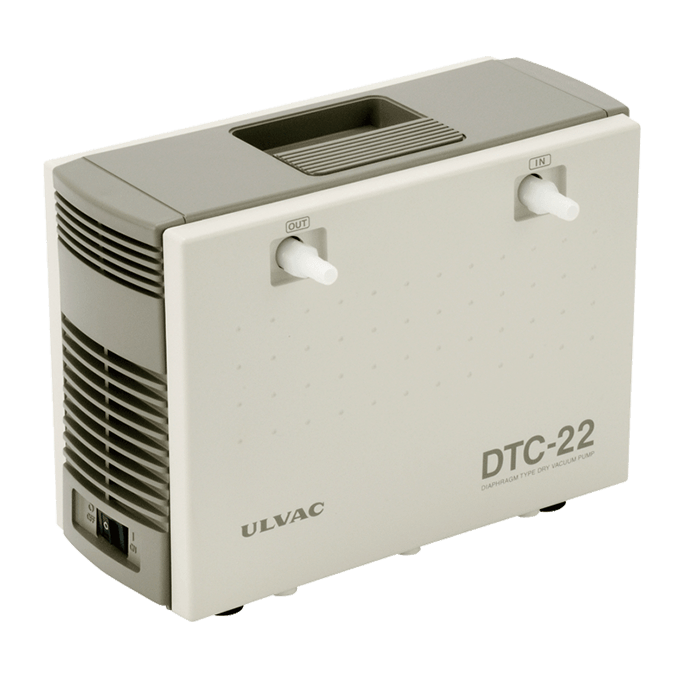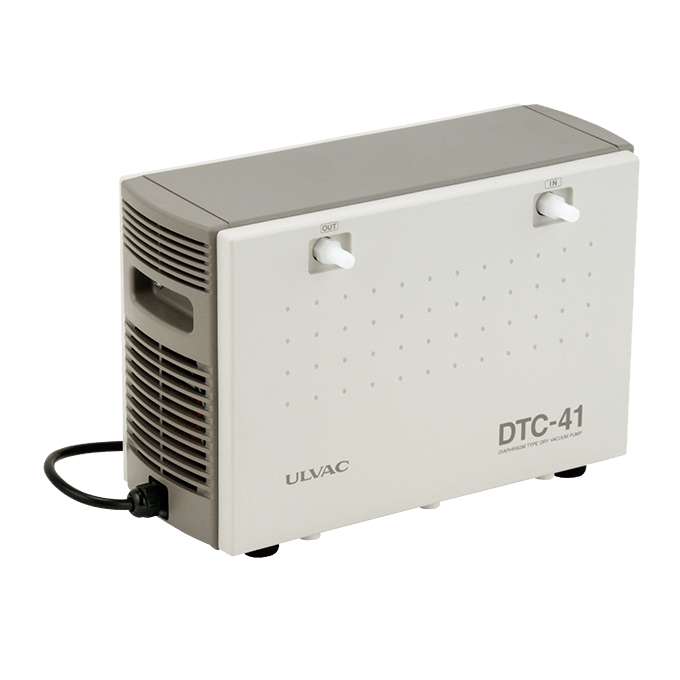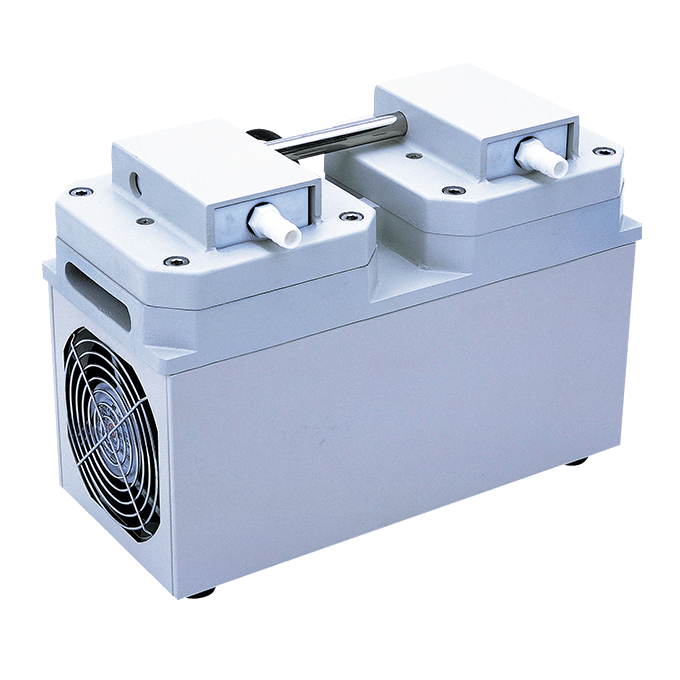Causes and solutions of failures and errors
1. Problems with rotation and starting
2. Abnormal Noises
3. Pump performance degradation
Corrosion resistance of the diaphragm (synthetic rubber)
If the pump sucks the condensable gas that contains the moisture
Failures at vacuum starting
Differences between full load current value and starting current value
Causes and solutions of failures and errors
1. Problems with rotation and starting
| Causes | Solutions |
|---|---|
| Power Failure | Repair |
| Power Switch Failure | Repair contact failure |
| Voltage Drop | Adjust the power supply voltage, and check the power supply cable |
| Disconnection of the cord | Replace or repair |
| Locked connecting rod | Disassemble pump head and check interior |
| The breaker has operated | Investigate the reasons for the operation |
| Problem with bearings | Replace or repair |
| Thermal protector has operated | Switch power OFF, and eliminate the cause of operation of the thermal protector |
| Low ambient temperature | Ensure that the temperature is 7~40℃ |
| Vacuum starts inside the pump | Return the inside of the pump to atmospheric pressure |
2. Abnormal Noises
| Causes | Solutions |
|---|---|
| Damage to bearing | Replace or repair |
| Damage to diaphragm | Replace |
| Damage to motor | Replace or repair |
3. Pump performance degradation
| Causes | Solutions |
|---|---|
| Damage to diaphragm | Replace |
| Damage to inlet and outlet valves | Replace |
| Air filter clogging | Clean or replace |
| Leakage of the Intake pipe | Clean or replace |
| Voltage Drop | Adjust the voltage. Enhance the power line circuit |
| Ambient temperature is not appropriated | Ensure that the temperature is 7~40℃ |
| Leakage from piping and connection parts | Inspect and repair pipe leaks |
Corrosion resistance of the diaphragm (synthetic rubber)
|
Characteristics |
NBR Nitrile rubber |
FPM Fluorocarbon rubber |
CR Chloroprene rubber |
EPDM Ethylene・ Propylene rubber |
|---|---|---|---|---|
| Steam resistance | ○ | ○ | △ | ○ |
| Ozone resistance | △ | ○ | ○ | ○ |
| Halogen gas resistance | × | ○ | × | ○ |
| Concentrated nitric acid(61%) | × | △ | × | × |
| Dilute nitric acid(12%) | × | ○ | × | ○ |
| Concentrated sulfuric acid(97%) | × | ○ | × | × |
| Dilute sulfuric acid(48%) | △ | ○ | △ | △ |
| Concentrated hydrochloric acid | × | △ | × | △ |
| Concentrated phosphoric acid(85%) | × | ○ | △ | ○ |
| Concentrated acetic acid (99%) | × | × | × | ○ |
| Dilute acetic acid(50%) | × | × | × | △ |
| Ammonia gas (cold) | × | ○ | × | × |
| Benzene | × | △ | × | × |
| Naphtha | × | △ | × | × |
| Trichloroethylene | × | △ | × | × |
| Methyl alcohol | ○ | × | ○ | ○ |
| Ethyl alcohol | △ | △ | ○ | ○ |
| Ethylene glycol | ○ | ○ | ○ | ○ |
| Acetone | × | × | × | ○ |
| Cresol | × | ○ | × | × |
If the pump sucks the condensable gas that contains the moisture
Please remove the moisture. Otherwise, the life of the pump will be shortened.
Some components of the pump chamber are not water-resistant. If it is unavoidable to suck water vapor, it is more effective to operate the pump in an atmosphere open state frequently to let water inside out.
For example, even if components of the pump chamber is made of water-resistant fluorocarbon resin, it is effective to operate the pump after operations or several times a day in an atmosphere open state.
Failures at vacuum starting
When the pump stops due to an accident such as a power outage while operating at the ultimate pressure, the inside of the pump is kept vacuum.
Since a large differential pressure occurs between the vacuum state of inside and the atmospheric pressure state outside, it may be difficult to restart.
In such a situation, if the inside of the pump chamber is returned to atmospheric pressure ( vacuum break ), the pump will rotate smoothly.
If the pump is restarted without breaking the vacuum, it is difficult to start up
- Overcurrent flows to the motor
- The overcurrent causes the temperature of the pump to spike.
- The pump may be damaged
Differences between full load current value and starting current value
Full load current value:The Input current value when the motor outputs at 100%. Also called the rated current value.
Starting current value:Current value when turning on the motor and starting operation.
It depends on the type of motor, but the current momentarily flows about 5 times the full load current value.
